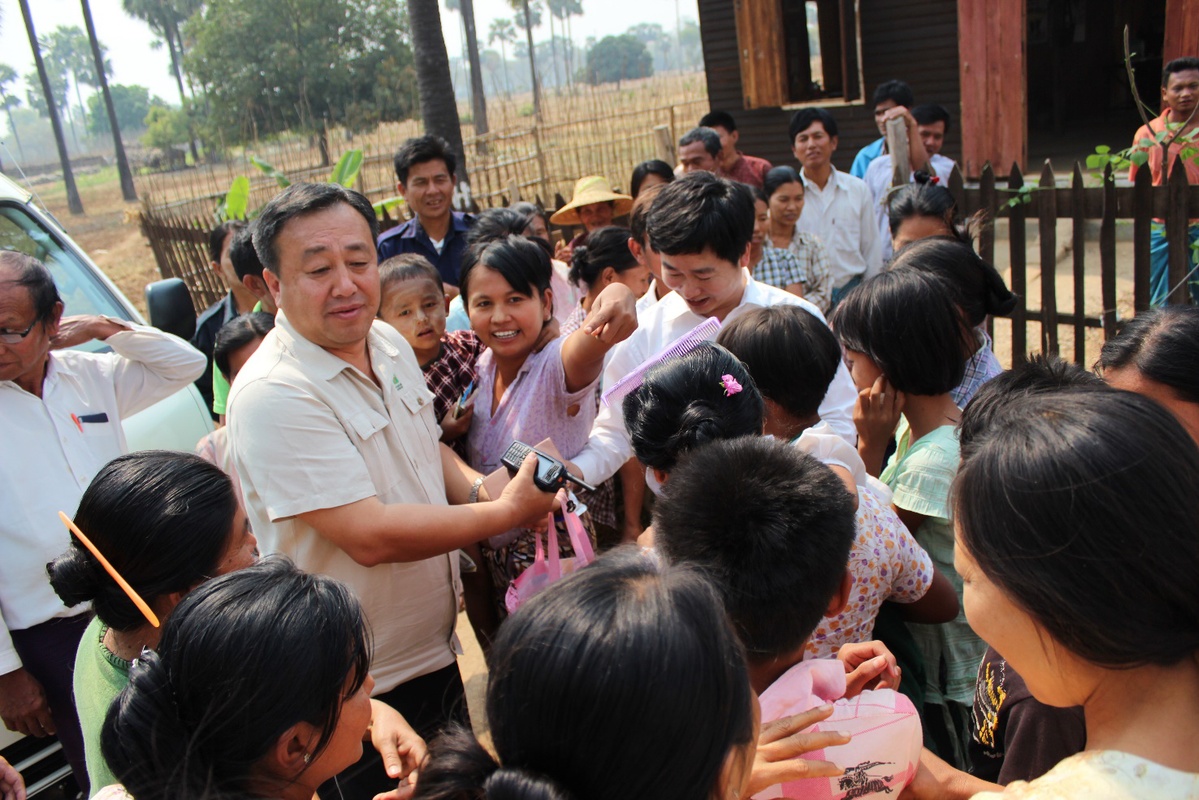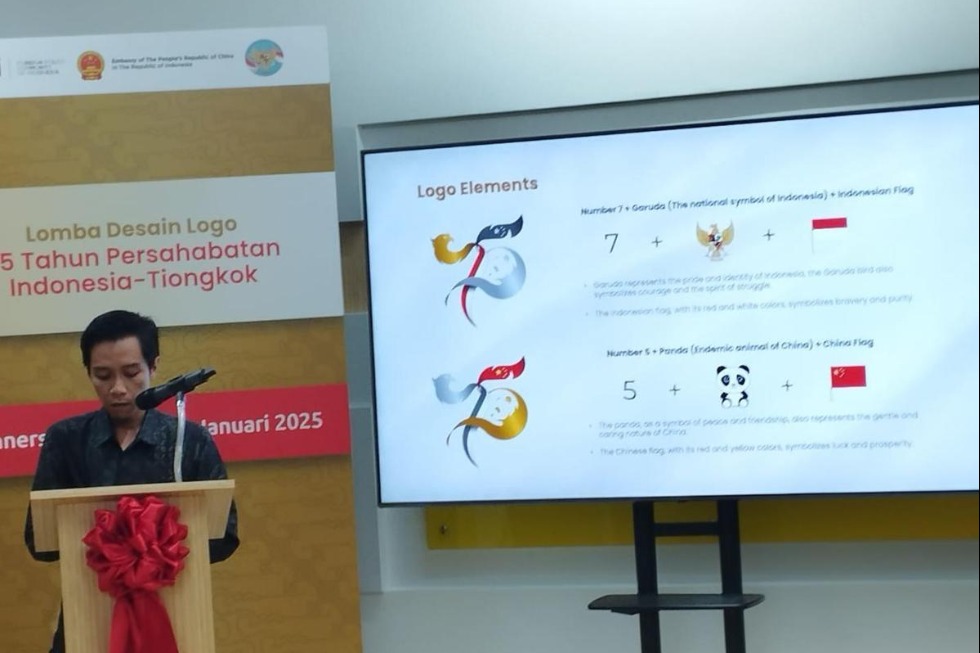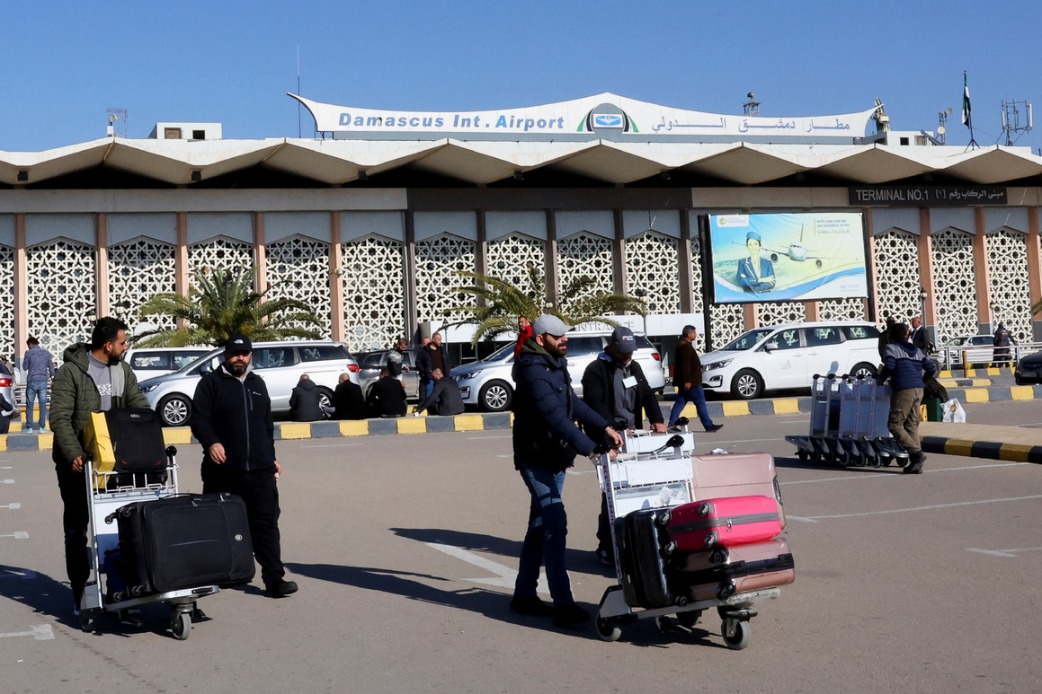Manager gets load of love from villagers


Luo Daqing, an executive of a State-owned Chinese mining company, bid goodbye last month to villagers living near Letpadaung copper mine project in Monywa in Sagaing region, Myanmar. He still has a deep connection with them as he used to interact every day with those in need of help.
The 60-year-old, who was a deputy general manager at Myanmar Wanbao Mining Copper Ltd since 2011, retired after having worked for about nine years in the Southeast Asian nation and spending a lot of time with communities living around the mine.
Hundreds of people from nearby places came to see him on Dec 7, when he left the mine for his home in Beijing.
Luo said he could not withhold his tears. He said he felt his efforts had paid off as the "ice" that once existed between the local community and his company had all melted.
"I had mixed feelings when I left the mine," he said. Luo said he witnessed the groundbreaking ceremony for the mine, experienced the toughest phase when local people protested against them, and celebrated the production of the company's first copper plate.
Luo's company started construction of the Letpadaung mine in March 2012. However, due to protests from the local people over relocation and compensation for land use in the mining area, the construction work was suspended in November 2012.
The locals, who mostly complained against "inadequate compensation", were worried the project would pollute water, cause health problems and destroy religious heritage of the place.
The Myanmar government constituted a committee, led by then opposition leader and parliamentarian, Aung San Suu Kyi, who is now the country's state councilor, to look into the locals' concerns.
The committee submitted its report to then Myanmar President Thein Sein, which was released on March 12, 2013. It proposed that the project be continued for the economic benefit of the nation and the people, especially for the benefit of the future generation. It recommended community consultations to win social license to operate the project.
Social license is the ongoing acceptance of a company or industry's standard business practices and operating procedures by the general public and other stakeholders.
The report asked the project operator to take appropriate measures to address the locals' concerns.
Ever since, the company, together with its Myanmar partners, made all-out efforts to engage with the community and allay its concerns about land compensation, environmental conservation, community development and so on, said Luo, who was the chief manager of community affairs.
"We realized that only through deep engagement and communication with the communities will we get an opportunity to understand them," he said.
To win the social license to operate the project, Luo led a team comprising both Chinese and Myanmar employees to meet the communities in 26 villages, including four that needed relocation.
"That was really a tough job. We went from village to village, door to door. We took note of their grievances and explained to them the company's policy toward community support," Luo said.
"Based on our community consultations, we worked out measures to allay their concerns about future livelihood after land loss, such as job creation, vocational training and support for the development of small and medium-sized enterprises."
Myint Myint Aye, a middle-aged woman from Moe Kyo Pyin village, was one of those leading the protests. Now, she heads a quarry team supplying rocks to the company, thanks to Luo's assistance.
Recalling her first meeting with Luo in 2013, she said she was impressed with Luo's sincerity in resolving the problems her fellow villagers were facing. "He offered us purchase contracts for construction materials so we could earn our food through predictable income," Myint Myint Aye said.
"Mr Luo is farsighted and pays great attention to the livelihood of people who have lost their land. Every time we had a problem, we approached him and always got solutions," she said. "We miss him very much."
Under Luo's leadership, his company helped villagers to establish teams for construction, transportation, well sinking and quarrying, besides assisting them in setting up brick factories and poultry farms.
While offering purchase contracts, the company also helped build capacity for the villagers to earn a living other than through farming.
"Doing such businesses is something new for a mining company like us. It's difficult but we want to show them that Wanbao is actively assuming its social responsibility, and we are trying to do things in the right way," Luo said.
"We know SMEs are the real path to a truly prosperous and contented community around us. They are also the heart of Myanmar's economic development," he said.
"Our strategy was aimed at creating alternative and sustainable sources of employment for the villagers, enabling the creation of alternative job opportunities through the creation of backward linkages from the mine, and promoting skills development, knowledge transfer and industrialization in the area."
Tun Tun, 38, from Kan Daw New village, is one of the beneficiaries. He was a driver in Luo's company, but resigned later and became a leader of a transportation team comprising the villagers.
"Mr Luo is a household name near Letpadaung because he is so nice to our villagers," Tun Tun said. "He often turns up in fields under the scorching sun and talks to villagers. He helped us a lot."
The Letpadaung copper mine, which has reached full production now, has become a model project for Belt and Road cooperation between China and Myanmar.
Luo said he was happy to be involved in the win-win cooperation between the two neighboring countries.
"The project is mutually beneficial in nature," Luo said, adding his company wants to develop with the local communities, Sagaign region and the whole of Myanmar at large.
After spending nine years in Myanmar, Luo says it is now time to look after his parents, who are in their 80s. "Now, I'm retired, and now I have time to be with me parents."

































